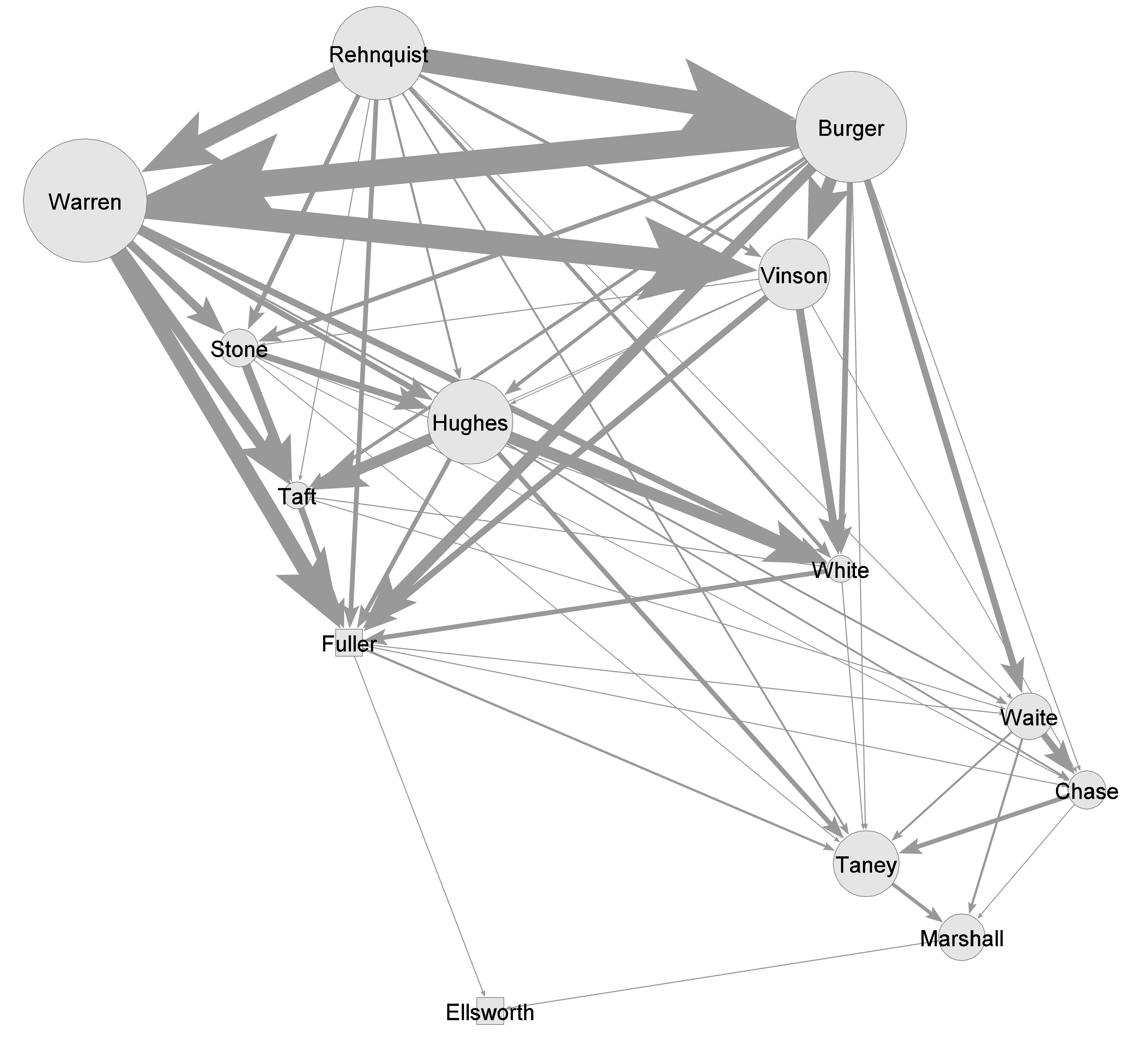Séminaire “The signed US Supreme Court citation networks”

La Fédération de Recherche Agorantic organise, le 29 mai de 10h30 à 12h30, un séminaire avec, pour invité exceptionnel, Patrick Doreian, professeur de sociologie et de statistiques à l’Université de Pittsburgh (USA).
US Supreme Court decisions cite early decisions made by the Court. As such, it is viewed as a directed unsigned network. While this network has been useful for studying links between decisions and the historical contexts when decisions were made, it is incomplete. There is one clear way in which negative ties are created between decisions. When a decision overturns an earlier decision, the earlier decision is repudiated as having legitimacy. If the earlier decision is overturned completely it is repudiated totally. When it is overturned in part, then only parts of the prior decision are repudiated.
Overturning of decisions is usually studied by using separate pairs of decisions. The approach taken here is to study the network of overturning and overturned decisions. This network is more complicated than a set of pairs of decisions. Decisions can be overturned multiple times. One decision can overturn multiple earlier decisions. Separate components of linked decisions have intriguing structures. Also, over turned decisions have been cited as precedent! These components are one focus of this presentation with the intent of understanding how they arise and what motivates the decision of the Court to undo earlier decisions.
A second focus is to examine the rates at which specific Courts overturn prior courts defined in terms of their Chief Justices. This is a valued network. In particular, the rates of overturnings between pairs of Courts are studied to see if the rationales for overturnings are legal, political or driven by consistency principles.
To study these issues, a unique data set was constructed for all pairs of overturning and overturned decisions for the period 1789 through 2005. All the consulted sources were incomplete, some seriously so.



